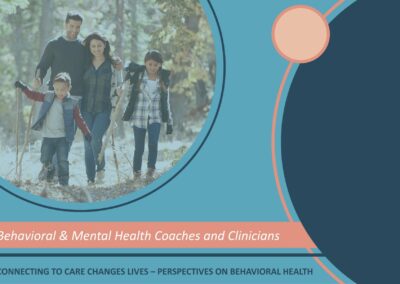Celebrating the Holidays with a Friend or Family Member in Recovery
The holidays are often a time for joy and celebration, but for many people in recovery, the holidays can also bring stress, fear, and relapse. It is important to find the right balance that protects your loved one’s recovery while still allowing you and your other family members to enjoy the season. Unpleasant memories of previous holiday seasons and a lack of trust can make families and friends hesitant to open their arms to the person recovering from substance abuse. Below are tips to prepare for and navigate the holiday season.
Practice open communication. Determine if the family is ready to celebrate the holiday with the recovering person. Are there unresolved hurts or resentments that could make the holiday difficult for all? Does your family understand addiction and embrace recovery or is the topic masked in denial and shame, an “elephant in the room”?
Addiction is a family disease. Addiction affects not only the addicted individual but the family as a whole. Denial or shame around addiction, if not appropriately addressed, can make the holiday difficult for the family and risky for the recovering person. Communication within families about these issues is important, and families need to talk about them. Consult a therapist, participate in a recovery support group along with your loved one. Try attending a Family Support Group, Al-Anon, or Nar-Anon meeting and speak with others who are in similar situations. They may be able to share suggestions and tips on how to handle situations that may arise. Are you and your family ready?
Ask your friend or family member if they are comfortable taking part in the celebration this year. Make sure they understand that it is perfectly OK to miss the celebration if that is what is best for their recovery. Their recovery comes first. It’s better to miss them this time around to increase the likelihood that they will be alive, well, and able to participate in future events. Think of it as a sacrifice now that will produce gratification for all later.
You are not responsible for your guest’s recovery, even if that guest is your child, sibling, parent, or friend. Behind the scenes arrangements to “help” the recovering person through the event can sometimes be unhelpful. Be respectful by being direct. Reach out to them in advance to see if there’s anything you can do to help the event go smoothly or more comfortably. Be ready and willing to accept “No, thank you” if that is the answer.
Suggest that they attend an extra meeting or two before a holiday celebration. Having a strong support network during this time of year will help your loved one stress less and enjoy more.
If you will be serving alcohol, check to see if your guest is comfortable with that. Let your loved one know that they are an important part of your celebration and that you want to do everything you can so they feel at ease and can enjoy the festivities. Encourage them to invite a friend in recovery to the party. By having someone around who understands what they are going through, it will be easier for them to handle any potential stressors. If they are not ready to be around alcohol regardless of who is with them, opt not serve any. Remember, even if you’re willing to host an alcohol-free gathering, your family member or friend might not be comfortable attending if alcohol is not served simply because they are present.
Ask what kinds of beverages they would like to have. While non-alcoholic “mocktails” may seem like a good idea—and many in recovery do enjoy them—they may be a trigger for some people in early recovery, because they visually remind them of cocktails or because they remind them that they can no longer drink. Despite all the pain and aggravation that alcohol and drugs may have caused the recovering individual, giving them up can result in a powerful sense of loss. Beverages such as hot spiced cider, hot cocoa, iced or hot tea or coffee are often welcomed.
Do not make alcohol the focus. Intentional or not, alcohol is often a central part of celebrating the holidays. Families spend hours sitting around and drinking while catching up and reminiscing, which can make your loved one feel uncomfortable and isolated. Keep talking and connecting with your relatives and guests; but try a change of scenery. Start a new holiday tradition such as going ice skating, sledding, having a snowball fight, gathering around a fire or going for a walk or hike. Everyone will enjoy and benefit from the fresh air which is great for physical and mental health. Outdoor activities are a great way to bond without alcohol.
Provide time and space for your guest to step away from the group, if needed. Being able to take a walk, relax in a quiet room, step away to connect by telephone with another person in recovery, attend a mutual aid meeting, or gracefully depart early can be very important to a person in early recovery.
Listen to them. If they don’t want any special steps taken to accommodate them, and both you and they are comfortable with them taking part this time, then simply go ahead.
While you prepare to make this holiday season comfortable for your loved one, do remember to give equal attention to your own needs. Remember, taking care of yourself is an important part of taking care of your loved one.
Sources: socialworktoday.com, jewishboard.org, samhsa.gov, mountainside.com
Stay up to date and informed with the latest
trending topics and articles

4 Ways to Improve Your Mental Health in 2022

Heart Smart

COVID in 2022 – Understanding Business Challenges and Finding Solutions

